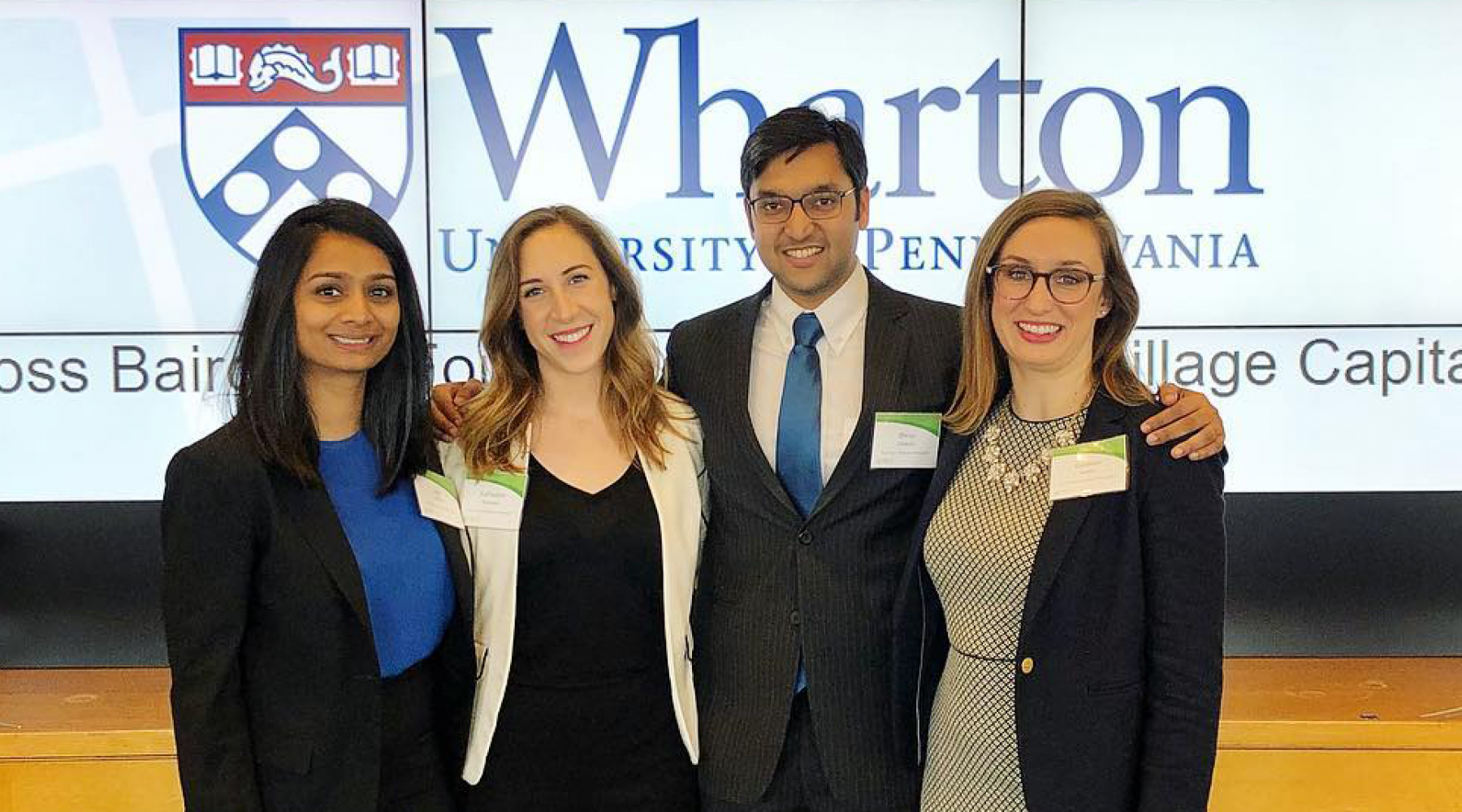
After running through our final practice pitch in the hotel lobby in Philadelphia, my team and I reflected fondly on the culmination of our work over the past six months. We were representing Tuck at the MBA Impact Investing Network & Training (MIINT) final competition hosted by The Wharton School. The program, conducted by the Wharton Social Impact Initiative and Bridges Ventures, sees students from 25 top schools across the world compete for an investment in a startup of their choice.
My team felt that MIINT was an accurate simulation of what to expect as an early stage impact investor, even more than what we would have been exposed to in a traditional classroom environment. One of my teammates, Katherine Solomon T’19, summed it up nicely when she said, “We’ve been operating as a social impact VC firm since arriving on campus in September—from writing an investment thesis, to sourcing and conducting due diligence on companies.” The iterative nature of deal sourcing and conducting diligences, combined with the possibility of winning real funding capital in a competition, proved to be one of the richest learning experiences during our first year.
This year, Tuck had the largest number of students participating than ever before. Topics ranged from educating adults through gaming platforms to improving health outcomes using natural language processing. Five different teams of first-year students pitched startups for a chance to represent Tuck in the final competition. Teams were supported by advisors from the Center for Business, Government & Society and MIINT’s extensive online educational modules. I initially wanted to participate in the MIINT competition to learn more about how social enterprises are evaluated and how impact-related outcomes are measured in various sectors, but left with a much deeper understanding of the impact investing process.
Leading to the formation of a successful final pitch, each team navigated through real challenges that impact investors face, like regulatory impediments and small market sizes. Teams sourced ideas from an incredible array of entrepreneurs via online impact platforms, alumni, and accelerators, learning about new technologies and markets along the way. I found that it was an excellent way to connect with Dartmouth faculty and researchers to learn which solutions the greater Dartmouth community is working on. Laura Marrin T’19, a fellow MIINT participant, explained: “MIINT was a fantastic experiential learning opportunity as I was able to work with a great team of Tuckies from diverse perspectives who were all passionate about impact investing.”
For me, the most valuable part of the MIINT program was feeling more confident and well-equipped to talk about impact investing and having meaningful conservations with professionals in the space. It allowed me to connect with a greater network of students interested in impact investing and social entrepreneurship beyond the classroom. Though our pitch did not place at the MIINT final competition, I left thinking about impact investing not just as a learning experience, but as a future career option.
Teja is a first-year student and serves as a Business, Government & Society Fellow. She graduated from Georgia Tech with a degree in Industrial Engineering. Prior to Tuck, Teja worked as a business manager for Siemens Healthcare based out of Chicago, focusing on nuclear medicine. During the summer, she will be returning to Chicago to intern at McKinsey & Company and going to every neighborhood food festival possible.